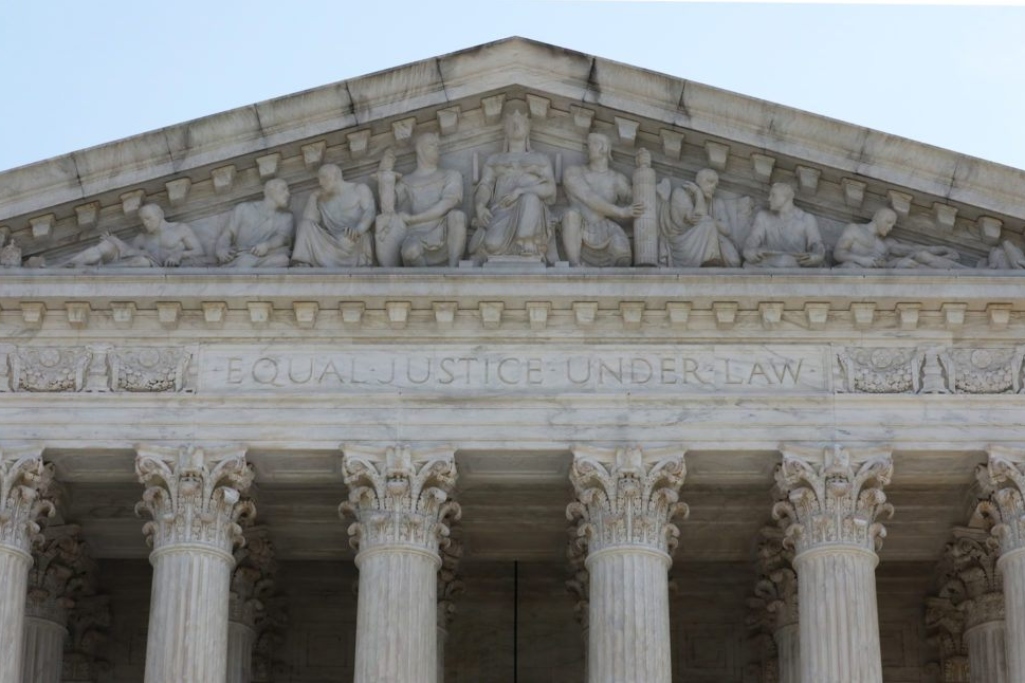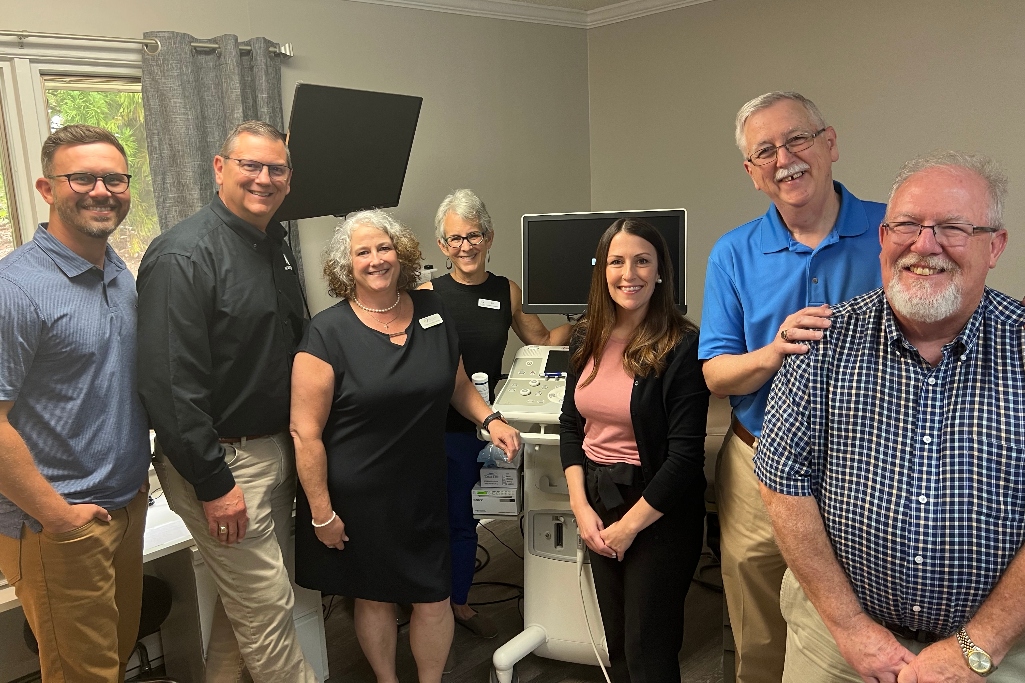
The U.S. Supreme Court.
WASHINGTON (BP) — Monday (June 24) marks the two-year anniversary of the U.S. Supreme Court’s historic overturning of Roe v. Wade, and the Ethics and Religious Liberty Commission (ERLC) is celebrating this victory for the pro-life movement while acknowledging there is still more work to be done.
The landmark decision in Dobbs v. Jackson Women’s Health Organization, a case regarding Mississippi’s prohibition of the abortion of preborn children whose gestational age is more than 15 weeks, opened the door for other states to enact pro-life laws and marked a long-sought-for victory for pro-life advocates.
The high court’s decision, handed down on June 24, 2022, overruled the 1973 Roe v. Wade decision that struck down all state abortion bans and legalized the procedure throughout the country. The 5-4 opinion also invalidated the 1992 Planned Parenthood v. Casey opinion that affirmed Roe.
Brent Leatherwood, president of the ERLC, said the historic decision represented not an end to the pro-life movement but a “new beginning.”
“It’s been two years since the Supreme Court’s historic Dobbs decision that marked a new beginning for the pro-life chapter,” Leatherwood said. “We rejoice knowing the ruling put an end to the Roe regime, but also realize there’s still work to be done on the local, state and federal level to put an end to abortion once and for all. We will continue to work with lawmakers to enact policies that care for and serve both vulnerable mothers and preborn children.”
When the decision was handed down, Leatherwood joined many Southern Baptist Convention (SBC) leaders in expressing his gratitude for the historic moment many Southern Baptists had long awaited. Leatherwood, then acting president of the ERLC, called the decision “a true turning point in the pro-life movement.”
Southern Baptists, as a whole, have long-held to the pro-life ethic, and SBC messengers have passed many resolutions over the years concerning abortion and life issues, such as the resolution from the 2024 SBC annual meeting concerning in vitro fertilization (IVF).
The ERLC represents the pro-life ethic of Southern Baptists in the federal government and in the courts. The ERLC has repeatedly advocated for pro-life causes for many years, including joining a friend-of-the-court brief in support of the Mississippi law in the Dobbs case which urged the Supreme Court to overrule the Roe and Casey opinions.
As a result, the ERLC and other pro-life advocates view the overturn of Roe as Leatherwood said: the beginning of a new era for the pro-life movement.
A changing landscape
Since the Dobbs decision, the primary focus area for pro-life policy has become the state and local levels of government because of the gridlock on pro-life legislation in Congress. Currently, 14 states have enacted near-total bans on abortion, with some providing limited exceptions, such as those for cases of rape or incest. There are a few additional states where abortion is legal but with a gestational limit of six to 18 weeks.
Data from the initial months after Roe was overturned indicates abortion decreased throughout the country during that time period. However, the Guttmacher Institute, a pro-abortion research and policy organization, released data earlier this year demonstrating a spike in overall abortions provided nationwide in 2023.
According to their research, there was also a continuing upward trend in the use of medication to terminate pregnancies in 2023.
Additionally, this new abortion landscape throughout the nation has created new issues, such as “abortion tourism,” where women will travel to a state where abortion is legal in order to obtain one.
At the national level, several pieces of legislation involving abortion and life issues still continue to be discussed.
In the midst of this changing national landscape regarding pro-life issues, the ERLC continues to support the pro-life movement through a variety of means, outlined below.
Policy priorities
As abortion and other life issues have taken center stage in state-level politics, the ERLC continues to help inform and advocate for Southern Baptists.
In this November’s upcoming elections, several states have or may have ballot initiatives relating to abortion or life issues to be voted on. The ERLC recently published an article outlining these different ballot initiatives that will or could potentially be up for a vote in various states.
Additionally, the ERLC annually outlines the policy goals they will advocate for through their federal and state public policy agendas. These resources help spell out the policies that the entity will be supporting in the upcoming year.
This year, the ERLC’s federal public policy priorities related to life include:
- Ending the Proliferation of Chemical Abortions
- Respond to the Alliance for Hippocratic Medicine v. FDA decision
- Oppose the Women’s Health Protection Act
- Support the No Taxpayer Funding for Abortion Act
- Oppose “Abortion Tourism”
- Expand Hyde Protections to Prohibit Taxpayer-Funded Abortion Travel
- Support the Work of Pregnancy Resource Centers
Psalm 139 Project and pro-life advocacy
Even beyond their public policy advocacy, the ERLC ministers in a post-Roe world by also supporting the work on pregnancy resource centers around the country, often through their Psalm 139 Project.
The initiative is designed to raise money to provide ultrasound equipment and necessary training to pregnancy resource centers. Through the initiative, more than 80 different ultrasound machines have been placed, including more than 10 placements in 2023.
Rachel Wiles, director of the Psalm 139 Project and ERLC deputy chief of staff, said now is the perfect time for such a project.
“In the two years since the Dobbs ruling, we know that providing hope to mothers facing unplanned pregnancies and families in crisis is just as important now as ever before,” Wiles said.
“Regardless of federal law and state policies, families need the support of pregnancy centers and local churches to wrap around them and affirm the dignity and worth of every preborn child.”
In addition to the Psalm 139 Project, the ERLC supports the pro-life movement in various ways, including participating in the annual March for Life and helping partner with other like-minded organizations.
Leatherwood said the ERLC’s theological convictions ultimately compel them to fight for the pro-life cause even in a post-Roe world.
“We believe from the moment of conception to natural death, each person is made in the image of God and is worthy of protection and care,” Leatherwood said. “This truth, grounded in the imago Dei, is why we will champion life for the most vulnerable among us.”
(EDITOR’S NOTE — Timothy Cockes is a writer in Nashville.)


